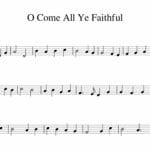Psalm 118 is a powerful song of thanks and praise, cherished for centuries. This commentary will guide you through this incredible poem, exploring its history, vivid imagery, and enduring message of hope. Whether you’re a seasoned Bible scholar or just beginning your exploration, join us as we uncover the multifaceted beauty of Psalm 118, from its intricate structure to its profound theological significance, including its possible hints at the coming Messiah.
A Hymn of Gratitude and Triumph
Psalm 118 bursts with joy and thankfulness, echoing the feeling of unexpected deliverance. This chorus of praise invites universal participation, welcoming everyone from ancient Israelites to modern readers to celebrate God’s goodness. It’s a testament to the shared human experience of gratitude.
From Despair to Deliverance (Verses 5-19)
These verses paint a picture of being trapped and helpless, a feeling many can relate to. The psalmist’s cry for help leads to unexpected deliverance, a sudden shift from despair to joy. This resonates with countless human experiences of finding unexpected aid in times of darkness.
The Cornerstone and the Gate (Verses 20-29)
This section introduces powerful symbols: the gate, suggesting entrance and belonging, and the cornerstone. Initially rejected, the cornerstone becomes the foundation, the essential piece. For Christians, this foreshadows Jesus’ role. The resounding cry of “Hosanna!” echoes through centuries of worship.
Diverse Perspectives: Ambrose, Henry, and Hilary
Scholars have interpreted Psalm 118 through various lenses. Ambrose, a fourth-century bishop, saw it as a prophecy of Jesus’ resurrection. Matthew Henry connected it to King David’s victories and individual believers’ triumphs. Hilary of Poitiers offered a unique perspective, particularly on verse 13, highlighting the possibility of multiple valid interpretations.
Psalm 118’s Enduring Resonance
From ancient Jewish festivals to modern worship, Psalm 118 continues to inspire. Its themes of deliverance, trust, and hope transcend time and cultures. How does this ancient hymn speak to you? Does it bring comfort, challenge, or hope? Its beauty lies in its ability to offer new insights throughout our lives.
Unveiling the Timeless Wisdom of Psalm 118: Lessons for Today’s Believer
Psalm 118 shimmers with layers of meaning. Let’s delve deeper into its wisdom and explore its key takeaways for our lives today.
God’s Steadfast Love: A Foundation of Hope
Imagine feeling surrounded by adversaries, fear gripping your heart. The psalmist knew this desperation, finding solace in God’s steadfast love, “Hesed.” This unwavering love is the bedrock of Psalm 118, expressed from the outset: “Give thanks to the Lord, for he is good; his love endures forever!” (v.1). This resonates with our own cries for help, reminding us where true refuge lies.
The Path from Distress to Deliverance
Verses 5-18 depict a dramatic shift from distress to deliverance. Overwhelmed, the psalmist cries out, and God responds. This mirrors our struggles, assuring us of God’s presence, even in the darkest times. The psalmist’s victory offers us hope and encouragement. Delve into the intricacies of Spanish verbs and unlock a deeper understanding of past actions by exploring the preterite conjugation of conocer.
The Paradox of the Rejected Cornerstone
Imagine a builder discarding a stone, only to find it becomes the cornerstone, the essential foundation. This image, perhaps prophetic, resonates deeply. Verse 22, “The stone the builders rejected has become the cornerstone,” is often interpreted by Christians as foreshadowing Jesus, rejected by some yet becoming the foundation of their faith. This paradox teaches us that God’s ways are often beyond our understanding.
A Celebration of Gratitude and Praise
The psalm shifts to public praise. Verses 19-29 depict a triumphant procession, worshippers entering God’s presence with joy and gratitude. The cry of “Hosanna!” connects us to ancient worshippers. Visualize the overwhelming joy and shared experience of God’s grace.
Psalm 118 in the Modern World
Psalm 118 isn’t just an ancient hymn; it’s a testament to faith’s power. Even Martin Luther found solace in its verses, declaring, “This psalm has been of special service to me. It has helped me out of many great troubles…” How can we embody its message today? Cultivate gratitude, even in hardship. Trust in God’s steadfast love, especially during adversity. Let its themes of resilience, gratitude, and unwavering trust guide you.
Which Psalm Will Lift My Eyes? Psalm 121: Finding Strength in God
Feeling overwhelmed? The psalmist’s cry, “I lift up mine eyes unto the hills,” captures this yearning for something beyond our own power. Psalm 121 answers this very question: Which Psalm will lift my eyes? It’s a journey from despair to hope.
Where do you turn in tough times? Psalm 121 suggests looking higher: “My help comes from the Lord.” This recognizes the ultimate source of strength. Our deepest strength comes from the Lord, the creator of all.
But what if help seems distant? Psalm 121 portrays God as our unsleeping guardian, always present, watching over us. It reminds us that even when we feel alone, we are not abandoned.
How does this relate to us today? Our “mountains” may be metaphorical – deadlines, relationship struggles, anxieties. But the need for help is universal. How do we “lift our eyes” in the 21st century? Perhaps through prayer, conversation, or a walk in nature. These are our modern pilgrimages.
Some scholars suggest the “hills” symbolize the temple in Jerusalem, a place of refuge. Others suggest a general yearning for divine intervention. Ongoing discussion enriches our understanding.
Psalm 121 provides a roadmap for life’s ups and downs, shifting our focus from fear to faith. It empowers us to face challenges, knowing we are not alone. So, let its message lift your eyes today.
| Verse(s) | Core Idea | Possible Modern Application |
|---|---|---|
| 1-2 | Source of help is divine | Remembering God’s power in moments of stress |
| 3-4 | God’s constant watchfulness | Finding comfort in God’s presence, even in darkness |
| 5-8 | All-encompassing protection | Trusting God’s guidance through life’s journey |
While the overarching themes of protection and divine help are widely accepted, interpretation nuances remain a topic of discussion among scholars, enriching our understanding of this powerful psalm.
The Rebellion of Nations: Unfolding the Meaning of Psalm 2
Psalm 2 and 118 offer insights into rebellion, deliverance, and God’s enduring presence. They explore power, faith, and the world’s seeming chaos.
The Futile Rage of Psalm 2
Ever feel overwhelmed by the world’s apparent chaos? Psalm 2 captures this sense of powerful forces opposing good. It asks, “Why do the nations conspire, and the peoples plot in vain?” “Nations” (goyim) suggests a conflict beyond political disagreements, representing humanity’s rebellion against divine authority.
God’s Mocking Laughter and the Anointed Sovereign
Imagine rulers plotting against God’s sovereignty. God’s response? Mocking laughter, highlighting their rebellion’s futility. He has chosen his Anointed One, a key figure in messianic prophecy, who will inherit dominion and crush the rebellion.
A Timeless Narrative
While rooted in ancient Israel’s struggles, Psalm 2’s message transcends history. It speaks to the tension between earthly and divine power, resonating with today’s political turmoil and social upheavals. Some scholars suggest an allegorical interpretation, representing the internal struggle between autonomy and submission to a higher power.
From Despair to Gratitude: The Journey of Psalm 118
Psalm 118 contrasts this, moving from despair to deliverance. Imagine feeling trapped, then unexpectedly rescued. The psalm erupts with gratitude: “Give thanks to the Lord, for he is good; his love endures forever!” This refrain anchors hope and testifies to God’s faithfulness.
The Rejected Cornerstone’s Prophetic Significance
Psalm 118 also introduces the rejected cornerstone, ultimately the structure’s foundation. This image holds prophetic weight. Many Christians identify this cornerstone as Jesus, rejected by some yet essential to God’s plan. This suggests that even the overlooked can hold immense value.
A Psalm for All Seasons
What can we learn from these psalms? They offer comfort in trouble, reminding us of God’s love and the promise of victory. They encourage trust in a higher power amidst chaos. Whether facing personal challenges or global events, these hymns offer hope even in dark times.
| Psalm | Key Themes | Key Images | Relevance Today |
|---|---|---|---|
| Psalm 2 | Rebellion, Divine Authority, Messiah | Raging nations, mocking laughter, anointed king | Political unrest, power struggles, defiance of authority |
| Psalm 118 | Deliverance, Gratitude, Trust, Messiah | Rejected cornerstone, enduring love, thanksgiving | Overcoming challenges, finding hope, recognizing blessings |
- China II Review: Delicious Food & Speedy Service - April 17, 2025
- Understand Virginia’s Flag: History & Debate - April 17, 2025
- Explore Long Island’s Map: Unique Regions & Insights - April 17, 2025

















1 thought on “The Triumphant Song of Psalm 118: A Verse-by-Verse Commentary”
Comments are closed.